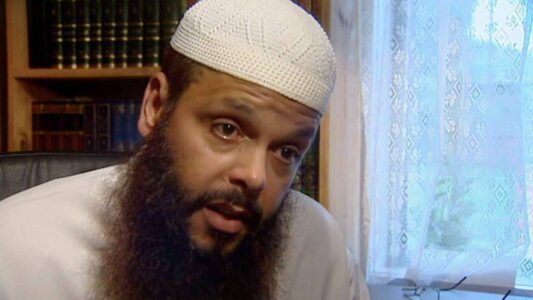
Fears over convicted terrorist Abdul Nacer Benbrika’s future plans
A convicted terrorist who plotted to bomb Australian landmarks could incite others to commit terror attack on home soil if released, a high ranking federal officer has warned.
Abdul Nacer Benbrika is due to be released this year after 15 years behind bars since he was convicted of being the “spiritual leader” of Australia’s largest terrorist network.
He and other co-accused plotted to bomb Melbourne’s MCG and Crown Casino as well as a nuclear reactor in Sydney.
But the Australian government is arguing in the Supreme Court of Victoria to keep Benbrika behind bars for an extra three years because of the belief he’s a risk of committing further terrorist acts.
Before his conviction, Benbrika covertly met with members of the terror network he established, Australian Federal Police Counter Terrorism assistant commissioner Scott Lee wrote in an affidavit.
“I am concerned that Mr Benbrika will seek to establish another such group on release, establishing himself as a person who can give religious or ideological guidance to others and use this as a means of recruiting people to participate in terrorist acts,” he wrote the tendered affidavit.
The assistant commissioner said if the convicted terrorist was released he could “influence, incite, urge or direct” Australians to commit violent jihad.
“Australians who hold extremist views supportive of Islamic State, who have been prevented from travelling to foreign conflict zones to support violent jihad, will be very vulnerable to Mr Benbrika’s influence and direction in circumstances where they are forced to shift their focus to committing domestic acts of terrorism on Australian soil,” he wrote.
He wrote he did not believe control orders would be sufficient to prevent the risk to the wider community if Mr Benbrika was released.
“It would be extremely difficult, if not impossible, to effectively frame a non-association control that would prevent Mr Benbrika from radicalising, inciting, directing, urging or influencing others to commit serious terrorism offences,” he said.
Federal police can request a control order be issued by a court to impose restrictions, prohibitions and obligations on a person to protect the public from a terrorist act.
These can include curfews, restrictions on telecommunication devices, reporting to police and prohibitions on associating with certain people or places.
While in jail Benbrika received visits from Khaled Sharrouf, who went on to fight for Islamic State in Syria and posted a photo of his then seven-year-old son holding the severed head of a soldier, the court was previously told.
The application for the continuing detention order in front of Justice Andrew Tinney continues.
Source: News AU





